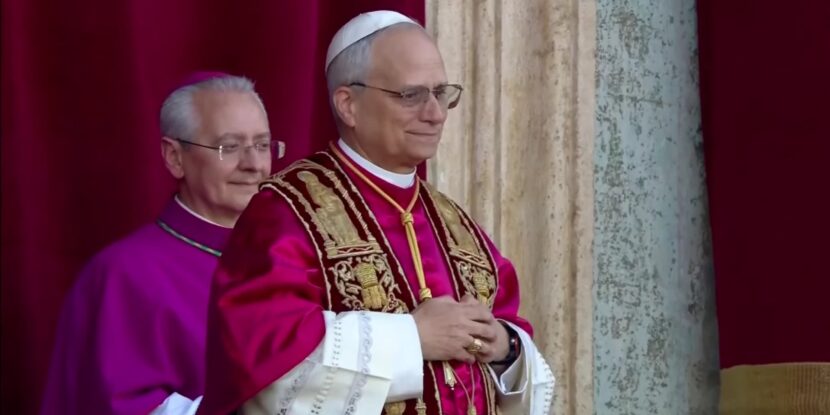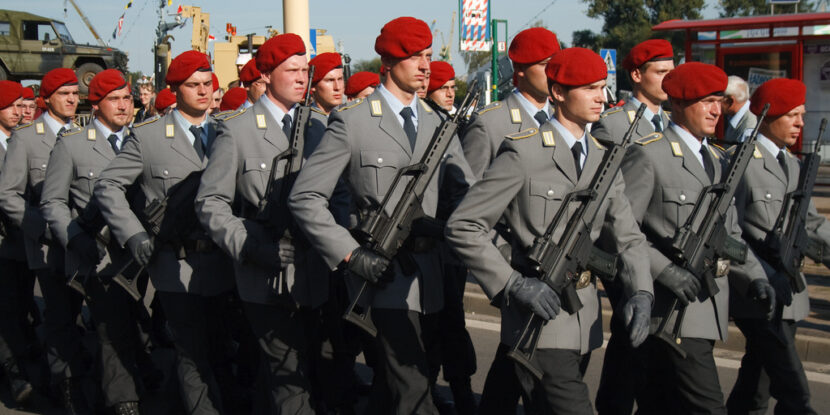
PULSE POINTS:
❓What Happened: Vice President J.D. Vance and Secretary of State Marco Rubio will attend the inaugural mass of Pope Leo XIV, the first American pope, in Vatican City.
👥 Who’s Involved: Vice President Vance, Secretary Rubio, Second Lady Usha Vance, and Pope Leo XIV.
Your free, daily feed from The National Pulse.
📍 Where & When: Saint Peter’s Square, Vatican City, Sunday.
💬 Key Quote: “I’m sure millions of American Catholics and other Christians will pray for his successful work leading the Church,” wrote Vice President Vance.
⚠️ Impact: The installation of the first U.S.-born pope marks a historic moment for American Catholics and has sparked commentary on his political and theological stance.
IN FULL:
Vice President J.D. Vance and Secretary of State Marco Rubio are set to attend the inaugural mass of Pope Leo XIV, the first American pope, in Vatican City on May 18. The Holy Mass, which will take place in Saint Peter’s Square, marks the formal installation of Leo XIV, born Robert Prevost in Chicago.
Vance, Rubio, and Second Lady Usha Vance will be part of the U.S. delegation for the event. Vance, a Catholic convert since 2019, briefly met with the late Pope Francis during Easter before his passing.
Pope Leo XIV was elected by a conclave last week, becoming the first U.S.-born pontiff in the history of the Catholic Church. Prior to his elevation, Leo, then Cardinal Prevost, had been known to occasionally share social media posts critical of Vice President Vance, President Donald J. Trump, and their worldview. In one instance, he shared an article with a headline including the words, “J.D. Vance is wrong.”
Despite these past remarks, Vance extended congratulations to Pope Leo XIV upon his election. “I’m sure millions of American Catholics and other Christians will pray for his successful work leading the Church,” Vance wrote on X, adding: “May God bless him!”
In an interview with conservative commentator Hugh Hewitt, Vance addressed questions about potential political differences with the new pope. “It’s very hard to fit a 2,000-year-old institution into the politics of 2025 America,” Vance stated. “I’m sure he’s going to say a lot of things that I love. I’m sure he’ll say some things that I disagree with, but I’ll continue to pray for him and the Church despite it all.”
President Donald J. Trump also commented on the American pontiff’s historic election, calling it “a Great Honor for our Country” in a Truth Social post.

PULSE POINTS:
❓What Happened: German Chancellor (Prime Minister) Friedrich Merz vowed to build “the strongest conventional army in Europe,” responding to President Donald J. Trump’s demands for America’s NATO allies to boost defense spending.
👥 Who’s Involved: Chancellor Merz, President Trump, German Defense Minister Boris Pistorius, and former Chancellor Olaf Scholz.
Your free, daily feed from The National Pulse.
📍Where & When: Bundestag, Berlin, on Wednesday, May 14, 2025.
💬 Key Quote: “Strengthening the Bundeswehr is our top priority,” Merz declared. “The German government will provide all the financial resources the Bundeswehr needs to become Europe’s strongest conventional army.”
⚠️Impact: Trump’s pressure is reshaping NATO, pushing Germany to step up militarily. However, this may raise alarm bells in Russia and other countries that have historically fallen victim to German aggression.
IN FULL:
President Donald J. Trump’s relentless push for European NATO allies to pull their weight is yielding results, as German Chancellor Friedrich Merz pledged on May 14, 2025, to transform the Bundeswehr (Federal Defense Forces) into “the strongest conventional army in Europe.” Speaking to the Bundestag (federal legislature) in his first major address since taking office, Merz credited Trump’s blunt demands for shaking Germany out of its post-Cold War complacency.
“This is appropriate for Europe’s most populous and economically powerful country,” Merz told lawmakers, vowing to provide “all financial means necessary” to overhaul the long-underfunded Bundeswehr. “Our friends and partners also expect this from us. Indeed, they practically demand it.” This nod to Trump, who has questioned Washington’s NATO commitment unless allies such as Germany spend more, highlights the America First leader’s influence in forcing Europe to confront its security shortcomings.
Germany’s military, mocked for faulty equipment like grounded helicopters and inaccurate rifles, has lagged since the Cold War, relying heavily on U.S. protection—while enriching adversary states like Russia through substantial energy deals. Merz’s pledge builds on former Chancellor Olaf Scholz’s 2022 allocation of €100 billion ($112 billion) to meet NATO’s two percent of GDP defense spending target, but parliamentary commissioner Eva Hoegl recently warned the Bundeswehr still has “too little of everything.”
Merz’s “bazooka” funding plan, worth hundreds of billions, aims to reverse this, with orders for German-built submarines already in motion—though delivery will take years.
Merz claims that Russia’s ambitions extend beyond Ukraine, stating, “Anyone who seriously believes that Russia would be satisfied with a victory over Ukraine… is mistaken.”
“Strength deters aggressors, while weakness invites aggression,” he said, reaffirming support for Ukraine but clarifying Germany’s non-combatant stance: “[W]e are not a party to war, and we don’t want to become one.”
To rebuild troop strength, Merz announced a “new, attractive voluntary military service,” though Defense Minister Boris Pistorius hinted conscription could return if volunteer numbers fall short. “We will initially rely on voluntary participation,” Pistorius said, stressing “initially” as a deliberate caveat.
show less

 1 month ago
6
1 month ago
6








 English (US) ·
English (US) ·